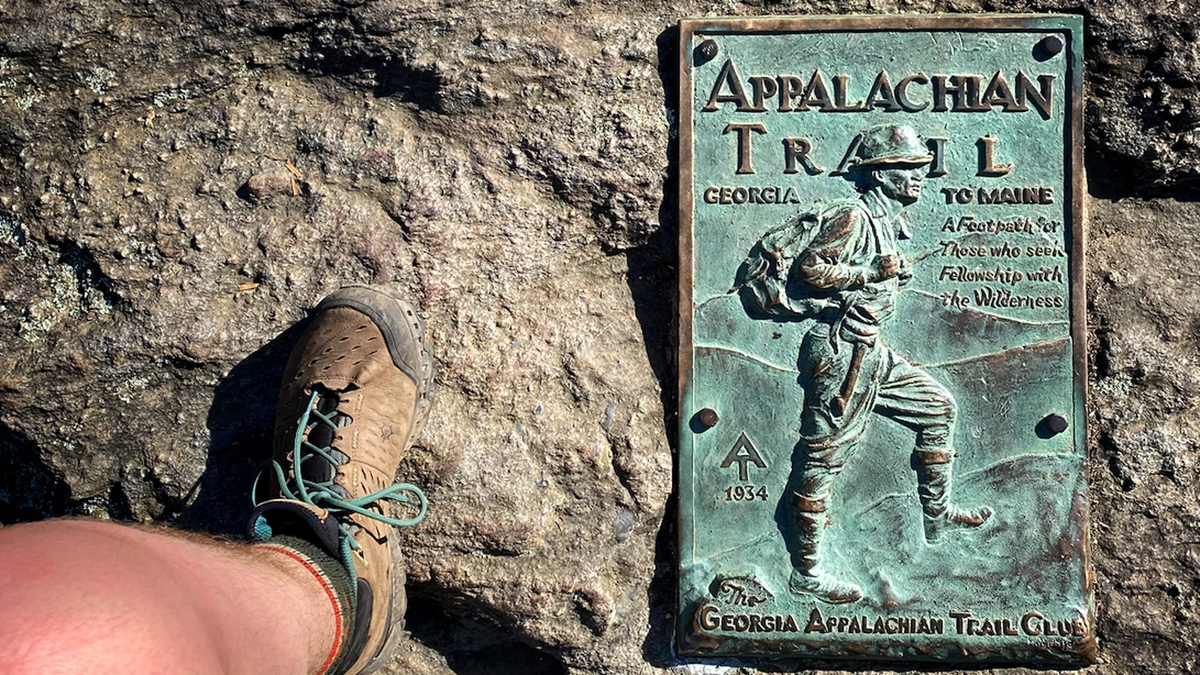Walking off grief on the Appalachian Trail

Gunnar Lundberg writes: "Thousands of people attempt to "thru-hike" the Appalachian Trail by traversing its entirety in a calendar year. According to historical stats, only one in four will succeed. The trail stretches for 2,193 miles, from northern Georgia to the middle of Maine, snaking its way through fourteen states in the eastern United States. Hikers cover anywhere from ten to forty miles per day, and the average thru-hike takes six months. During my five months on the trail, I encountered snow, straight winds, floods, heat waves, water shortages, black bears, and rattlesnakes. One day the heat rash was so painful. I laid on top of my sleeping bag and cried myself to sleep."
Ancient Roman mosaic offers a different ending to the Trojan War
The discovery of a previously unknown Roman villa in rural Rutland, England, during the 2020 lockdown was one of the archaeological stories of the year. Villas are emblematic features of the Roman countryside, and many are known across Britain. But this new discovery is unique. It has what could be considered the most significant Roman mosaic discovery in the past century at its heart. The mosaic tells a grim tale of revenge from near the end of the Trojan War, famously described in Homer’s Iliad. It is the only known representation of the Trojan War from Roman Britain and tells the story in an unusual “comic strip” style.

Scientists now have a new and deadlier pandemic to worry about
Zeynep Tufekci writes: "Bird flu — known more formally as avian influenza — has long hovered on the horizons of scientists’ fears. This pathogen, especially the H5N1 strain, hasn’t often infected humans, but when it has, 56 percent of those known to have contracted it have died. Its inability to spread easily, if at all, from one person to another has kept it from causing a pandemic. But things are changing. The virus, which has long caused outbreaks among poultry, is infecting more and more migratory birds, allowing it to spread more widely, even to various mammals, raising the risk that a new variant could spread to people."

This famous author was also a talented cryptographer
Edgar Allan Poe may be known for his tales of the supernatural, but he had a remarkably analytical, even mathematical mind. “The Gold-Bug” originated in Poe’s obsession with logic. William Legrand, who has lost his family fortune, one day notices a golden beetle on the beach. He has his servant wrap the bug up in a piece of parchment, on which he later discovers a coded message written in invisible ink, revealing the spot where Captain Kidd buried his treasure. Legrand’s explanation of how he cracked the code is paraphrased from articles on cryptography Poe had published in Alexander’s Weekly Messenger a few years earlier.

Experts believe that space and time may be just an illusion
Entanglement is much more than just another weird quantum phenomenon. It is the acting principle behind both why quantum mechanics merges the world into one and why we experience this fundamental unity as many separate objects. At the same time, entanglement is the reason why we seem to live in a classical reality. It is—quite literally—the glue and creator of worlds. Entanglement applies to objects comprising two or more components and describes what happens when the quantum principle that “everything that can happen actually happens” is applied to such composed objects.

From the Super Bowl to living under a bridge, and then back again
His bed was overlaid with cardboard and tucked into a cleft of piers and brush. He was covered in a sheet of thick, clear plastic. His head rested on a wadded yellow jacket, also wrapped in plastic. Alongside the bed lay two discarded automotive floor mats, a five-gallon bucket for bathing, a pair of neatly-arranged sneakers, a clean set of clothes, a jug of water and a carefully folded copy of The Times-Picayune. He slept in the fetal position in only his briefs and undershirt. There were probably two dozen sports writers pounding out daily stories when I walked back into the newsroom. “Has anyone ever heard of a guy named Jackie Wallace?” I said.

Visual evidence of just how big a wolf is
This video showing Danielle and Kekoa at the Colorado Wolf and Wildlife Center, gives an idea of the size of a wolf
— Massimo (@Rainmaker1973) February 7, 2023
[full video: https://t.co/L70j1zt4zI]pic.twitter.com/R2CIpGLyFU



